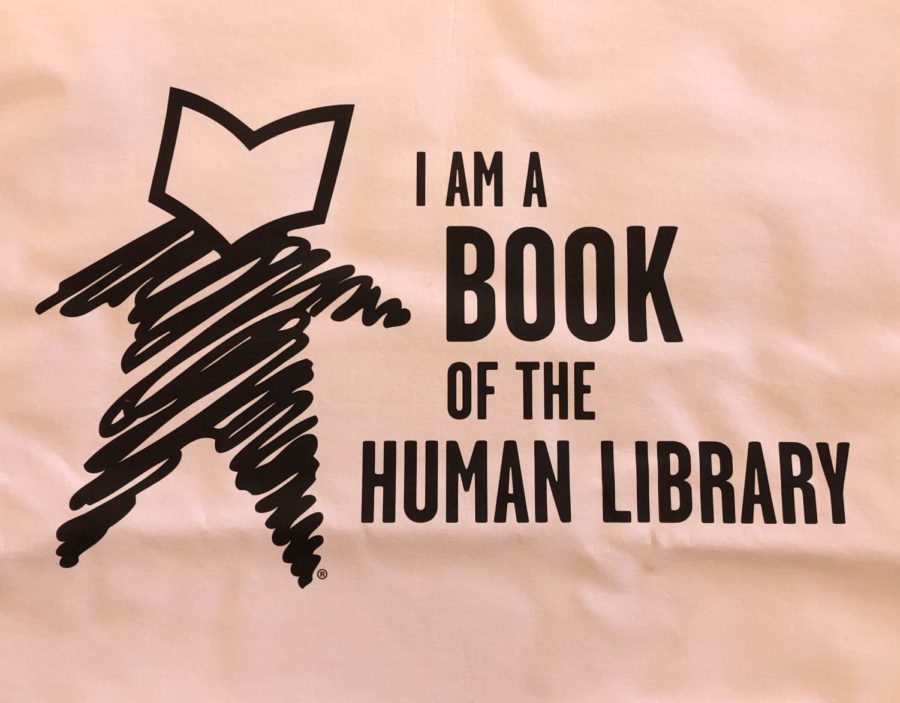Human books to tell stories at Parks Library
The logo of the shirts that human books will be wearing during the human library event where students will be telling their stories to attendees who “check out” the human books.
March 6, 2019
Parks Library will be hosting a Human Library event from 4:30 to 8:30 p.m. Thursday in 198 Parks Library. A human library is like a normal library but the books are humans who tell their stories.
A human book is a person who has volunteered to challenge prejudice through conversation with members of the public, who “borrow” them. The human books will have a title that relates to their experience of prejudice and/or discrimination.
“This event will be an opportunity to showcase and celebrate the diversity of Iowa State University and will provide a safe and supportive and respectful environment for people to learn more about and connect with more ways to better understand the experiences of fellow members of their campus community,” according to the library website.
Some of the human books that will be present at the event will include “The Independent,” “Cancer survivor, or, when my ovary tried to eat me,” “Labyrinth of Hope,” “Endeavors In Living: To Be Continued,” “Black Atheist,” “Quite Quiet: During and Post Selective Mutis,” and “Off of the Island and into the Snow: How moving to Iowa offered me a host of new experiences and opportunities.”
“Our student books have some very powerful stories to tell,” said Megan O’Donnell, a librarian at Parks Library.
For those interested in attending there is a required registration that can either be filled out ahead of time online at http://instr.iastate.libguides.com/humanlibrary/be_a_reader or at the entrance to the event.
The Human Library or “Menneskebiblioteket” in Danish, was developed in Copenhagen in the spring of 2000 as a project for Roskilde Festival.
The original event was open eight hours a day for four days straight and featured over 50 different human books. More than 1,000 readers attended this first event.
The way readers will be able to “check out” books is that they fill out “library cards” given by staff. Then, readers find the table the respective human book is at and listen to their 30 minute story. Time for conversation and questions will be after every storytelling.
“This event will be a place for dialogue, not just listening,” O’Donnell said.
















